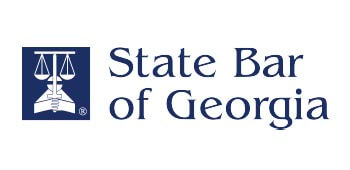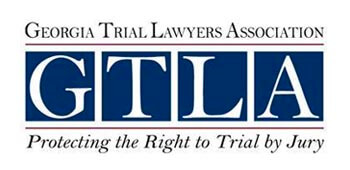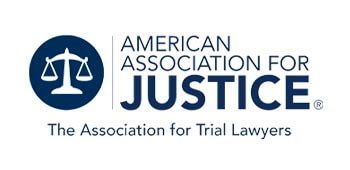There is nothing quite like riding a motorcycle in Georgia. The open air, the sharp throttle response, the rhythm of the road beneath your boots. It feels different because it is different. But when you ride on two wheels, you also ride without the frame of a car, the airbags, or the second chances that come from a steel body. That does not mean riding is reckless. It means riding demands awareness, because mistakes, especially someone else’s, tend to cost more.
How Often Do Riders Survive?
It surprises some people to hear that most motorcyclists survive crashes. One study pegs the survival rate around 93%. But those numbers need context. “Survival” does not mean unscathed. Many of those who make it through spend months recovering from head trauma, broken vertebrae, or internal damage that does not show up on the surface.
Also, where the crash happens matters. In downtown Atlanta, help might be two minutes away. On a foggy stretch of backroad in Twiggs County, it is a different story. The “golden hour” after a crash, when trauma care makes the biggest difference, ticks by faster when you are twenty miles from the nearest hospital.
The Most Common Injuries and Why They Hit Harder
Motorcycle wrecks do not tend to result in bruised bumpers. When something goes wrong, the rider takes the hit.
- Brain Injuries: A helmet helps, but even then, a hard impact can rattle the brain.
- Spinal Cord Damage: Falls and flips often lead to back and neck trauma.
- Internal Bleeding: These are the injuries you do not always feel right away.
- Multiple Fractures: Legs, arms, collarbones—bones get broken often, sometimes all at once.
Beyond the physical pain, there is the mental weight. Recovery does not just mean healing. It means stepping back into a life that might not fit quite the same way anymore.
What Makes the Difference Between Walking Away or Not
Several things stack the odds, some in your favor, some against.
- Speed: A crash at 30 mph might mean road rash. At 70, everything changes.
- Gear: There is no award for looking cool without protection. A solid helmet, armored jacket, gloves. These buy time, skin, and sometimes life.
- Location: Are you on a well-patrolled highway or a forgotten gravel stretch near Irwinton? EMS access matters.
- Road Conditions: Rain-slicked pavement, loose gravel, unlit corners. Most riders can handle one variable. It is the combination that hurts.
- Other Drivers: The number one risk to riders is not the machine. It is the minivan that did not check its blind spot.
Why Riding Feels Riskier Than Driving (Because It Is)
Motorcycles do not forgive the way cars do. There is no seatbelt. No second barrier. And other drivers do not always act like you are there. Even when you are. Especially when you are.
- A compact bike in traffic can disappear in mirrors.
- No crumple zone means your body becomes the contact point.
- And sometimes, riders get blamed just for being on a bike.
We have heard it in courtrooms. “Was the rider speeding?” “Were they weaving?” Often, no. But the assumption lingers, and that makes legal recovery tougher unless the facts are lined up tight.
Gear Is Not Optional. Not Really.
Helmet laws vary, but safety does not. The numbers? Helmets lower the chance of a fatal head injury by more than a third. They reduce serious brain injuries by about two-thirds. That is not theory. It is what trauma doctors and emergency medics see.
And it is not just helmets. A good jacket takes the edge off a slide. Gloves keep hands intact in a fall. Riding boots absorb force your ankle was not built for.
Riding gear will not make you invincible. But when something goes wrong, it gives you a shot at walking away.
Riding Smart Means Riding Defensive
Here is what we mean when we say “defensive”:
- Do not assume they see you. Make eye contact if you can. If not, expect they will not yield.
- Hold space. Give yourself time to react, not just to mistakes, but to surprises.
- Check the road more than once. Potholes, wet leaves, oil spots. What a car shrugs off can send a rider down.
- Train. Even if you have been riding for years, refresh your skills. Take a course. Learn something new.
Riding well does not mean riding scared. It means riding like you know how quickly things can turn—and how to avoid the turn entirely.
If Someone Else Caused the Crash
Even careful riders get hit. If it happens, and the other driver was at fault, maybe they ran a red light or turned left across your lane, then Georgia law gives you a path to compensation.
A good legal team can help you:
- Get your medical bills paid
- Recover income you lost while healing
- Cover rehab and follow-up care
- Deal with insurance companies that might treat you like a risk, not a victim
Not every case needs to go to trial. But every rider deserves to be taken seriously.
The Point Is Not to Scare You. It Is to Keep You Riding
Most people do not ride because it is safe. They ride because it feels alive. We get that. We have defended enough riders to know that what matters is not avoiding every risk. It is riding with enough awareness and skill to survive the ones you did not see coming.
So wear the gear. Take the course. Know the law. And if something goes wrong, know who to call.
📞 For legal help after a motorcycle crash in Georgia, reach out to Prine Law Group at (478) 257-6333 or contact us online.
We represent riders because we respect what riding means. And we fight like it matters because it does.





